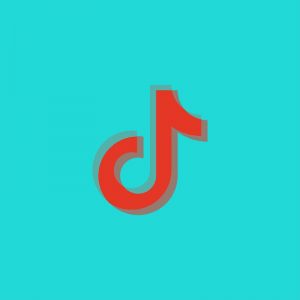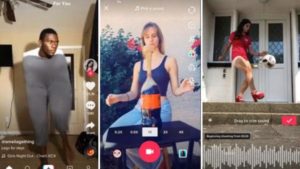Tech & Science dictionary
TikTok
[ tik-tok ]
What is TikTok?
TikTok is a massively popular app that lets users create and share videos up to 60 seconds long. Lip-synced music videos are especially popular on it. The app has given rise to a number of young social media influencers.
Dictionary.com is on TikTok! Follow our feed @dictionarycom for more great word content, like celebrity chef Duff Goldman on mouth-watering:
@dictionarycomChef and TV star Duff Goldman knows all the ingredients for the perfect ##kidswordoftheday! ##wordoftheday ##duffgoldman ##language ##learning ##teachers♬ original sound – dictionarycom
Where does TikTok come from?

TikTok is a social app that allows users to make short videos. Users can add filters, text, sounds, and music, and it is especially popular to make creative, lip-synched music videos. Users scroll through a newsfeed, react to content, and navigate with hashtags.
/cdn.vox-cdn.com/uploads/chorus_image/image/62659379/My_Post__55_.0.jpg)
The app was launched in 2016 in China, where it’s called Douyin. It went international in 2017 as TikTok; the name, apparently, is a play on tick-tock, onomatopoeia for clocks and a term for countdowns and minute-by-minute action. In 2017–18, TikTok bought and merged with competitor, musical.ly.
In 2018–19, TikTok came into prominence with a video trend where people transform into cowboys and cowgirls while lip-synching and dancing to Lil NaS X’s “Old Town Road.” The trend, sometimes called the #YeehawChallenge or Yee-Yee Juice Challenge, helped make the country-rap track “Old Town Road” a smash hit.
More context on TikTok
In 2020, TikTok notably trended in the news for several reasons. The app has come under fire from President Donald Trump, has been a source of privacy and security concerns due to it being owned by a Chinese tech company, and it has been the target of an acquisition by Microsoft.
All three of these issues have become interconnected: On Friday, July 1, 2020, Trump said that he had the authority to ban TikTok from the United States based on concerns that the data the app collects would fall into the hands of the Chinese government. Trump shortly thereafter slowed down his threatened ban by giving Microsoft a short deadline to finalize an acquisition of TikTok. It’s reported that Microsoft has had a keen interest in purchasing the app from Chinese tech company ByteDance due to its hugely increasing popularity and the vast amount of user data that the app collects (which Microsoft would gain legal access to).
As for TikTok users themselves, the overwhelming response seems to be animus towards Donald Trump, who was already unpopular with the app’s majority younger users even before the President targeted the app. It remains to be seen if TikTok users will seek a new platform—or if they will feel the need to if the app is “safe” thanks to a possible purchase by Microsoft. Regardless, multiple apps such as Triller or the Indian app Chingari have tried to seize the situation by marketing themselves as TikTok alternatives.
Trump says TikTok will close in the United States on Sept 15 unless Microsoft buys it. He says he’s fine with Microsoft buying it. pic.twitter.com/rwfZjVP27R
— Jeff Mason (@jeffmason1) August 3, 2020
Examples of TikTok

Who uses TikTok?
The term TikTok, of course, is commonly used in popular discussions (or explanations) of the app as well as among its users. The app is noted for its explosive growth and popularity, especially among younger people. It has been downloaded over 1.5 billion times and boasts over 800 million users.
70s, 80s, 90s, 00s, now! We’ll wait through your phases but we wanna see yours too. Join our challenge on TikTok and show us your fave dance era! Tag us using the hashtag #PHASESCHALLENGE pic.twitter.com/Nd5C2Tt7QN
— PRETTYMUCH (@PRETTYMUCH) May 3, 2019
TikTok has created a platform for comedians and influencers, many of whom seek to monetize their content there. As with much of new technology, especially tech that is popular with younger people, TikTok has its curmudgeons and critics—and plenty of cringeworthy moments too.
Someone who regularly creates videos on TikTok is referred to either as as a TikToker or TikTokker, though the spelling remains in flux. A video created on the app TikTok can be called a TikTok.
I’ve been writing TikTokker because that’s the way I say it in my head, but now people on here have gaslit me into spelling it TikToker. I think that’s probably more grammatically correct, but I still feel like TikTokker FEELS right. Waiting for our standards team to weigh in 😂
— Taylor Lorenz (@TaylorLorenz) February 12, 2020
Note
This is not meant to be a formal definition of TikTok like most terms we define on Dictionary.com, but is rather an informal word summary that hopefully touches upon the key aspects of the meaning and usage of TikTok that will help our users expand their word mastery.